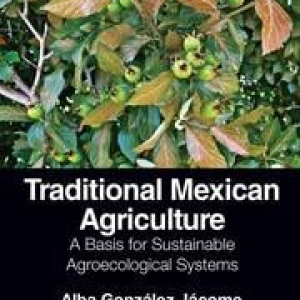
This book offers a holistic study of traditional Mexican agriculture, examining how it has changed according to environmental, climatic, geographical, social and cultural conditions. It sets out practices and knowledge that can inform sustainable agroecological systems.
Publisher’s summary
This long-needed book highlights how traditional Mexican agriculture has changed according to environmental, climatic, geographical, social and cultural conditions. Grounded in archaeological-historical data from interrelated research of various scientific disciplines, the book also draws on studies made by anthropologists of varied small-scale agricultural groups.
Traditional Mexican Agriculture is the result of a holistic study of Mexican agriculture. It offers the reader a perspective of traditional agriculture in Mexico from social, cultural and ecological Anthropology, Ethnology, regional and environmental History, and Agroecology, to help obtain sustainable agroecology where human societies obtain better ways of life and a healthy and nutritious food system. The book further aims to recover ideas, management, and components of local knowledge of small-scale farmers.
Pitched at university students and academics, as well as researchers and developers of agricultural matters, this book will be ideal reading at agrarian universities and related institutions. It provides a basis for future studies in sustainable agricultural systems in this region.
Reference
Jácome, A. G. (2022). Traditional Mexican Agriculture: A Basis for Sustainable Agroecological Systems. CRC Press, Boca Raton.
Read more here. See also the TABLE explainer What is agroecology?







Post a new comment »